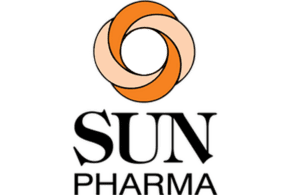 Sun Pharmaceuticals (NSE:SUNPHARMA) has received a clinical hold from the FDA on its experimental dermatological drug deuruxolitinib over the potential for thromboembolic incidents. The hold pertains to patients taking a 12-mg dose of the Janus kinase (JAK) inhibitor.
Sun Pharmaceuticals (NSE:SUNPHARMA) has received a clinical hold from the FDA on its experimental dermatological drug deuruxolitinib over the potential for thromboembolic incidents. The hold pertains to patients taking a 12-mg dose of the Janus kinase (JAK) inhibitor.
Reuters was the first to report the news.
Sun Pharma maintains confidence in deuruxolitinib despite FDA clinical hold
“No thromboembolic events were observed during phase 2 or phase-3 trials [of deuruxolitinib], and we remain confident in deuruxolitinib’s potential to treat patients with Alopecia Areata and will work closely with the US FDA to address the agency’s concerns,” wrote Dr. Rajiv Malik, president of Sun Pharma, in a statement
Sun Pharma acquired rights to deuruxolitinib through its acquisition of Concert Pharmaceuticals for $576 million earlier this year.
In March, Concert, then recently acquired by Sun Pharma, presented positive data from the phase 3 THRIVE-AA2 study.
FDA approval of baricitinib for severe alopecia areata in 2022
In June 2022, FDA approved Lilly’s (NYSE:LLY) Olumiant (baricitinib), another JAK inhibitor, for severe alopecia areata. Baricitinib first won FDA approval for moderately-to-severely active rheumatoid arthritis in 2018.
In February, Concert Pharmaceuticals announced that deuruxolitinib would retain its breakthrough therapy designation for alopecia areata after an FDA review of additional clinical data. The agency had previously informed the company that it would review its breakthrough therapy status following its approval of baricitinib.
In light of the FDA approval of a different JAK inhibitor as the first treatment for alopecia areata, the FDA previously notified Concert that it was reviewing the Breakthrough Therapy designation previously granted for deuruxolitinib. At the FDA’s request, Concert submitted additional clinical data and justification to support the continued eligibility of deuruxolitinib for the designation. The FDA has now informed Concert that, after reviewing these data, the Breakthrough Therapy designation criteria continue to be met at this time.
Outside of the risk of thromboembolic events, deuruxolitinib has been generally well-tolerated in phase 2 and 3 studies. The most common adverse events reported in clinical trials have been headache, acne, upper respiratory infection, increased creatine kinase levels and nasopharyngitis.
JAK inhibitors offer potential for a range of autoimmune diseases, but in 2022, FDA announced it would require a boxed warning related to the drug class over the potential for malignancies, thrombosis, serious infections, major adverse cardiovascular events, and mortality.